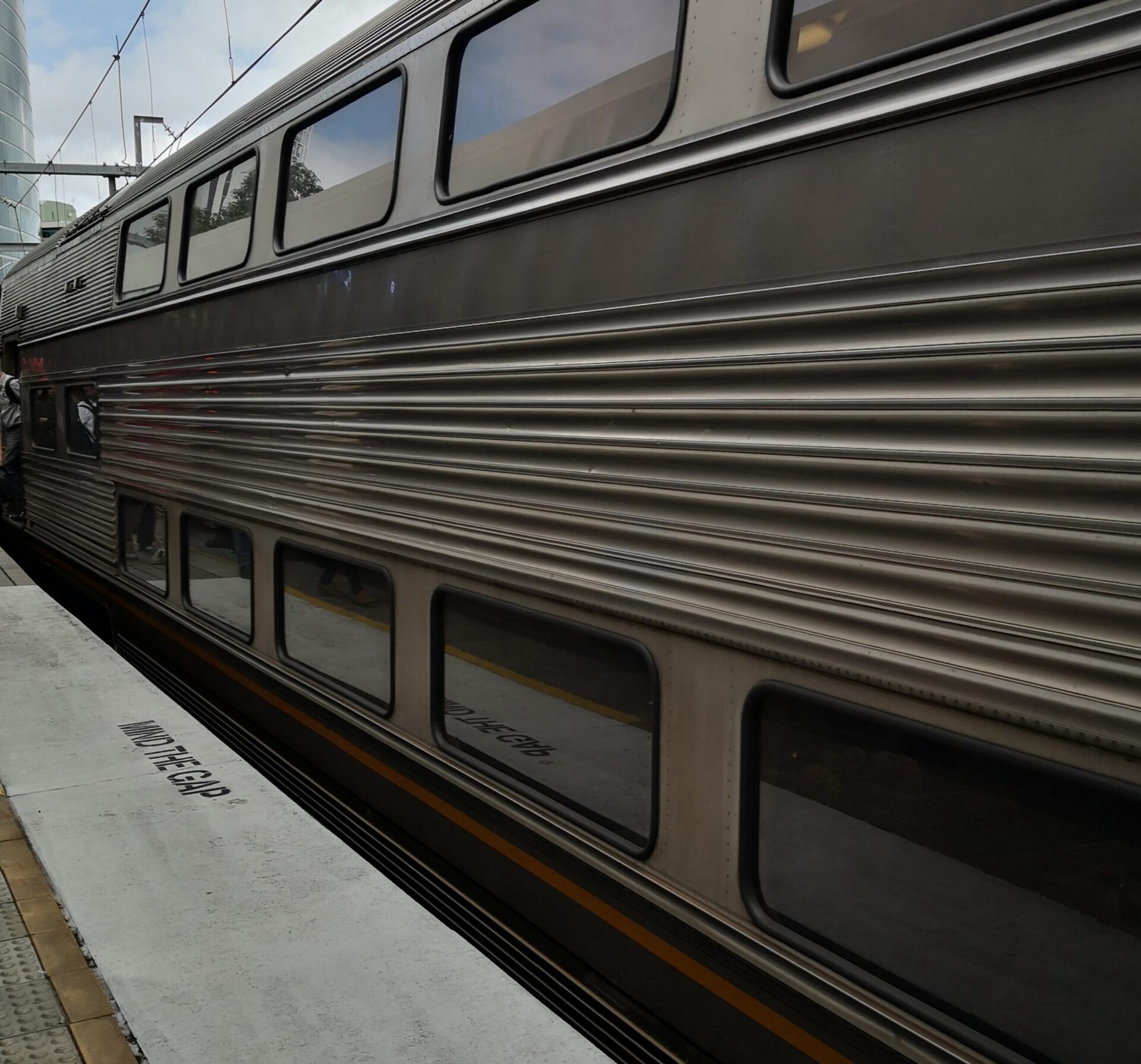Advice From Strangers
I was catching the train through the inner west of Sydney a few weeks ago, when a man came up to me and asked why I was in a wheelchair.
 As a person with a disability, I am of course obliged to disclose both the nature of my disability and full medical history to any member of the tax paying public that feels that it is their right to know, after all, what else should we talk about? It’s not like I am an actual person with a life and other interests.
As a person with a disability, I am of course obliged to disclose both the nature of my disability and full medical history to any member of the tax paying public that feels that it is their right to know, after all, what else should we talk about? It’s not like I am an actual person with a life and other interests.
So I told the inquisitive gentleman that I had Muscular Dystrophy.
“Is that like MS?” he asked.
What the hell I thought, let’s have some fun… “Yes, it’s just like MS, in fact Muscular Dystrophy is the second cousin of MS, twice removed.” That stunned him for a second, but to my surprise he regathered himself quickly like a boxer against the ropes, and then he was up for round two.
“You can’t walk?” he asked.
That’s not as uncommon a question as you might think. Personally I thought the electric wheelchair that I sit in was a bit of a giveaway, but you’d be surprised how many people feel the need to verify that assumption with cross examination.
“No, I can’t stand or walk,” I smiled politely. He then, from the goodness of his heart, proceeded to tell me how I could fix myself, by eating (I kid you not) pickled pigs’ trotters and ginger every day. For the next two stops on our journey he proceeded to tell me where to acquire said pigs’ trotters and how I should prepare them.
For me this encounter was like a déjà vu experience. I’ve had random strangers desperately pushing their healing remedies, and in some cases their healing hands, onto me ever since I have been using a wheelchair. These encounters almost always end with, what I like to call ‘The qualifying statement’, it’s the velvet gavel that closes down any chance of rebuttal.
I held my breath in anticipation and wondered what the statement would be, and then it appeared like a light at the end of the tunnel …
“My sister was in a wheelchair but she can walk now.”
Of course she can, I thought to myself, if you’re force feeding someone pickled pigs feet on a daily basis they’re going to find the strength to make a run for it eventually…..
My mother also has the same type of Muscular Dystrophy that I do, and so growing up I have seen the same procession of healers approach her and try their hand at fixing her ailment. My mother had a fall one day and was unable to get up. My Aunt went next door for assistance, and the Minister neighbour came and placed his hands on her to drive out the illness, and the commanded her to “Rise up!” To no avail I’m afraid. He later confided in me that her illness and mine were both attributed to her sinning, but there was hope for me if only I repented.
Another family friend was convinced that bee sting therapy would help stimulate the nerve endings and allow my mother to walk again. All she had to do was subject herself to repeated bee stings…
As for myself, I’ve tried more things than I can remember, chiropractic manipulation, acupuncture, Chinese herbal cocktails, and Australian bush flower essences. I’ve even found myself as part of an eccentric Taiwanese cult on a rural acreage in the pursuit of a cure.
It was while pursuing these elusive cures that I found something more profound, I found acceptance, and yet it is that lack of acceptance that drives others, once again from the goodness of their hearts, to try and fix was they see as a broken – me.
But I don’t see myself as broken. Life has presented me with challenges, and trying repeatedly to overcome those challenges has allowed me to grow as a person, I honestly believe that I am a better person for having had this experience, and for that I’m grateful. I am of course ungrateful and frustrated at times too, often in fact. At the end of the day though, I think the scales are tipped in my favour.
And what are we to do with the healers and random strangers? I ask them if they have ever experienced the healing powers of crystals….
Bio –
Andrew Grant was diagnosed with Limb Girdle Muscular Dystrophy at the age of 28. He then started a lengthy transition from working in very physical roles in construction and hospitality to pursuing tertiary education at TAFE NSW and the University of New South Wales. Andrew has attained a Bachelor of Fine Art for UNSW and is self-employed as an artist. His recent self-portrait, ‘Waiting for the NDIS’, was entered into for the Archibald Prize 2017. The portrait is a manifestation of the wait for the National Disability Insurance Scheme. Andrew also regularly participates in disability advocacy roles with St Vincent de Paul’s Ability Links Program and Nova Employment, as well as Mosman Council. Andrew lives in inner Sydney with his co-author/cat Pickle.
